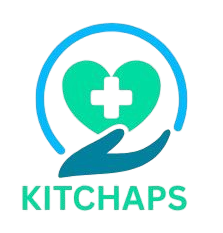Lowering cholesterol and lowering the risk of heart attack and stroke may be made simpler and more convenient with a new daily medication. At Monash University in Australia, a Phase 3 clinical trial was conducted on the investigational drug, Obicetrapib.
Over 2,500 participants in the trial, with an average age of 65, participated. They all had genetically high cholesterol or had been diagnosed with heart disease, according to a news release from the institution.
Every participant was on “maximum tolerated doses” of medication that lowers cholesterol. One group was given obetrapib while continuing to use their existing cholesterol drugs, whereas the other group was given a placebo.
Participants on the new medication demonstrated a 32.6% decrease in LDL cholesterol and a 33.5% decrease in lipoprotein(a) [Lp(a)] after 12 weeks, according to the announcement. The results were also published in The New England Journal of Medicine and presented at the European Atherosclerosis Society Congress in the United Kingdom last month.
“We know that many people at high risk of heart attack or stroke don’t get their cholesterol levels low enough, even on the best available treatments,” said Professor Stephen Nicholls, director of Monash University’s Victorian Heart Institute and Monash Health’s Victorian Heart Hospital, during the release.

Also said “Obicetrapib offers a promising new option — not only did it lower LDL cholesterol by over 30%, but we also saw a reduction in Lp(a), which is much harder to treat and has been linked to increased heart disease risk.”
Low-density lipoprotein (LDL), frequently referred to as “bad cholesterol,” is linked to adverse health outcomes when it is elevated. According to the experts, LDL can accumulate in blood arteries and raise the risk of heart attacks and strokes. It is well known that elevated blood levels of the protein lipoprotein(a), or Lp(a), significantly raise the risk of a heart attack. Lp(a) is a hereditary risk factor, unlike LDL, and cannot be changed by medicine or healthy lifestyle choices. According to the researchers, obetrapib was “well-tolerated” by the individuals.
“This could be a valuable tool in the fight against heart disease. “It’s convenient, it’s effective, and it may help close the gap for patients who’ve run out of options,” Nicholllas said.
The researchers pointed out that there were certain restrictions on the study, which was supported by NewAmsterdam Pharma, a Dutch company that develops obetrapib.
Because the subjects were not selected based on high Lp(a), for instance, the study was unable to ascertain the effects of the medication on those with elevated protein levels. Furthermore, although LDL level increases were evaluated, real heart attack or stroke outcomes were not measured in this investigation.
The researchers recognized that more study is required to involve more diverse cohorts and to follow patients for longer periods of time.

